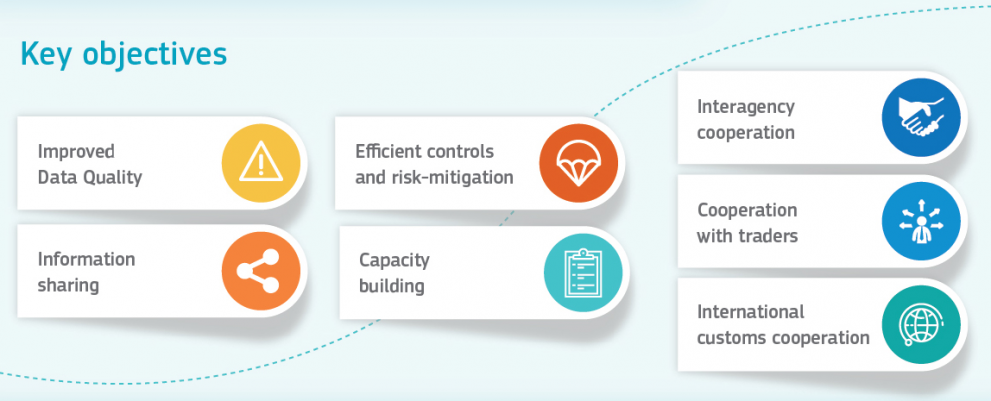The key objectives in the strategy to improve customs risk management are:

-
Data quality and filing arrangements
Improving a number of EU legal, procedural and IT systems* will ensure that operators can submit required information, including advance cargo information, in a harmonised way, taking into account international standards and without undue costs for businesses or for customs authorities.
*e.g. the entry summary declarations (ENS) IT system.
-
Information sharing
Mechanisms to ensure the availability and sharing of risk-relevant data amongst customs authorities throughout the entire control process should be put in place to allow Member States customs to analyse and mitigate risks where they are relevant.
-
Efficient controls and risk-mitigation
To avoid unnecessary duplication of controls and optimise the use of resources, controls have to be performed at the right place and time in the supply chain. This is why controls should take place according to the type of risk at stake (e.g. the risk of a bomb or an infectious disease needs to be dealt with before the shipment is even loaded for transportation in a third country, whereas financial misdemeanours can be addressed through post-clearance audits).
-
Capacity building
To ensure that all customs authorities implement risk management to a high standard across the EU, divergences between Member States should be identified and addressed. EU level support could be given to address weaknesses, including possible further capacities at EU and Member State level where needed. The cooperation between national customs authorities should also be further enhanced.
-
Interagency cooperation
Cooperation between Customs and other law enforcement authorities is important. Common risk criteria and improved information sharing would allow tackling supply chain risk enforced by the various authorities to support and complement each other's work.
-
Cooperation with traders
Further development of the partnership between customs and reliable traders should be enhanced, including through the promotion of the EU Authorised Economic Operator (AEO) concept and, in particular, through a broader recognition of the AEO standards by non-customs authorities.
-
International customs cooperation
The EU should remain active in creating global standards in international fora and should work to implement and promote these common norms amongst international trading partners.
